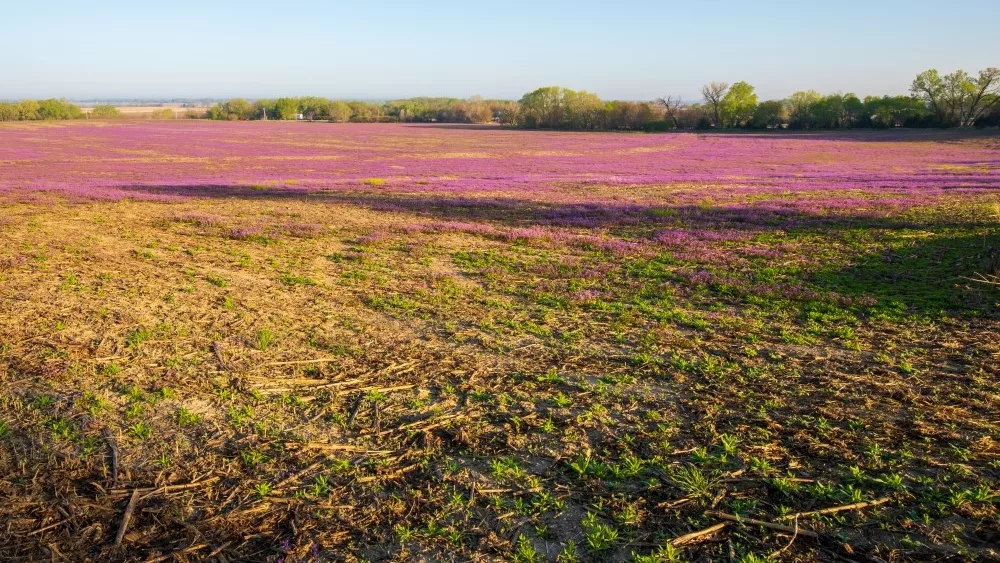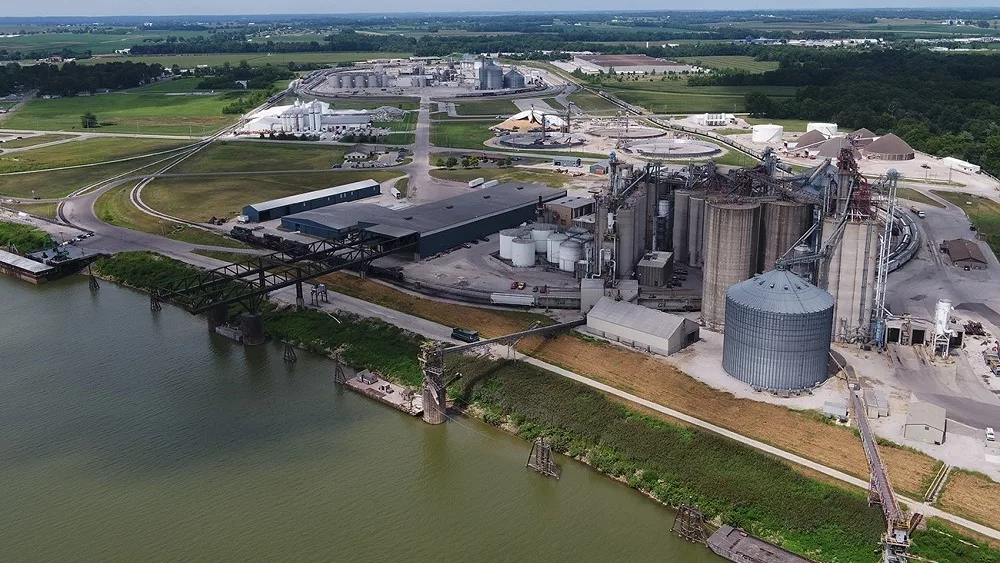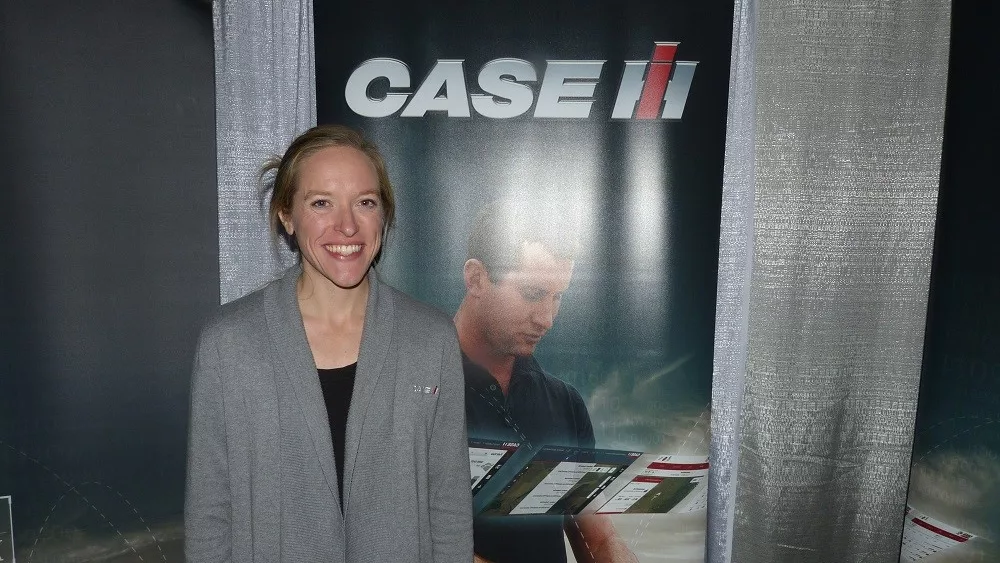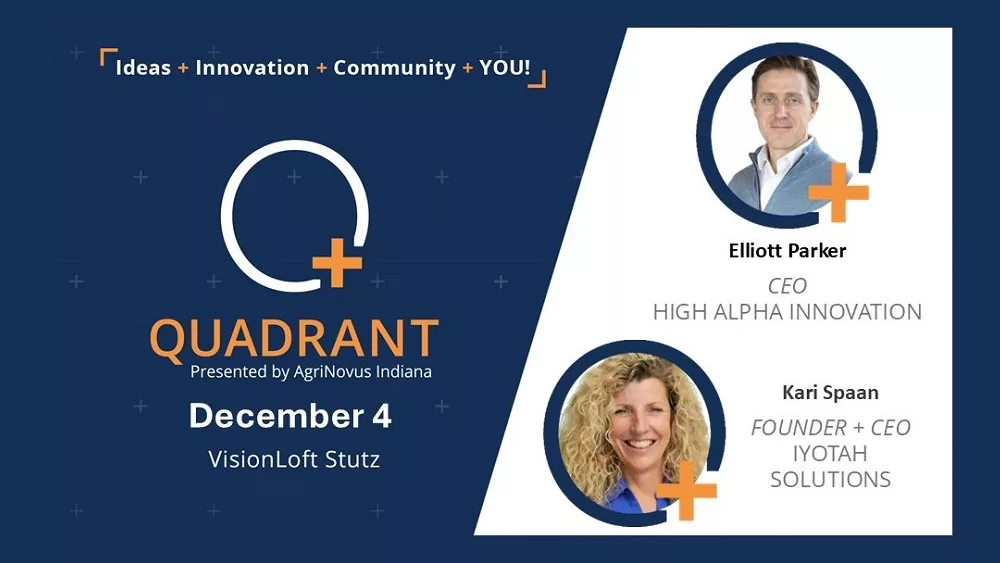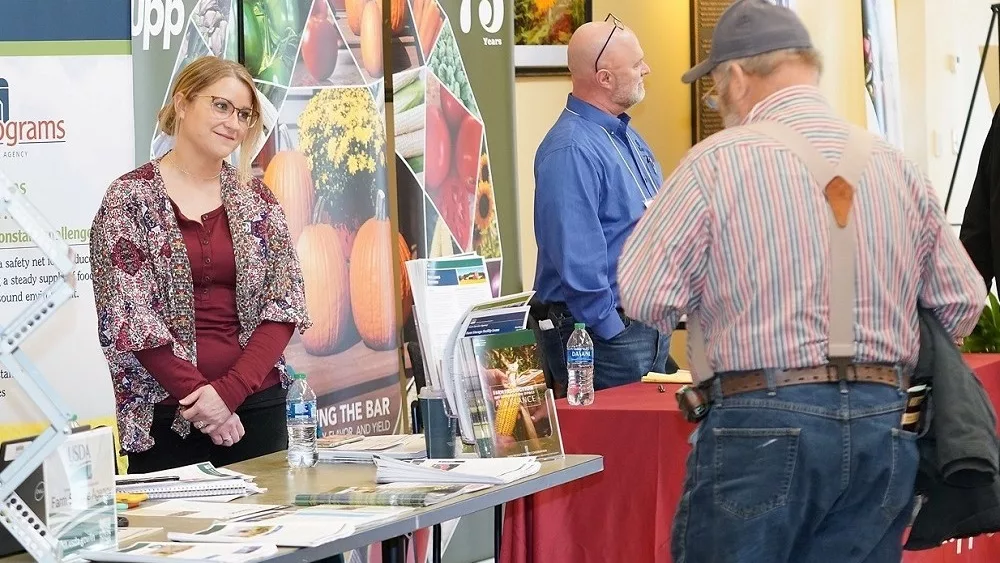For the casual observer, those Indiana farm fields of purple might look kind of pretty, but farmers know that henbit and purple deadnettle are just weeds that need controlled. A mild winter allowed weeds to get a good head start this year.
“We’ve had these purple flowered weeds, henbit and purple deadnettle, for decades in this area and throughout the Corn Belt,” says Dr. Bill Johnson, Purdue professor of weed science. He’s a guest on the latest Purdue Crop Chat Podcast, available now at hoosieragtoday.com or wherever you listen to podcasts.
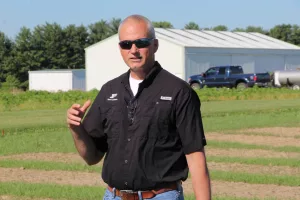 “The key thing to remember about these winter annual weeds is if we don’t get them controlled, they can go on and produce seed and obviously, produce a seed bank for future years. But also, in conditions where we have daytime air temps in the 60s and some wet soils, the soils will not dry out very rapidly either. They’ll kind of form a mat and they’ll prevent water from evaporating.”
“The key thing to remember about these winter annual weeds is if we don’t get them controlled, they can go on and produce seed and obviously, produce a seed bank for future years. But also, in conditions where we have daytime air temps in the 60s and some wet soils, the soils will not dry out very rapidly either. They’ll kind of form a mat and they’ll prevent water from evaporating.”
Johnson warns that henbit and purple deadnettle can also serve as an alternative host to soybean cyst nematode.
“And so, when we have what appears to be the pattern that we’re in now with kind of a warm, extended spring, but a little on the wet side, if we’re not able to get the henbit and purple deadnettle controlled, we can allow more reproduction of SCN on those weeds in the springtime as well which can increase higher populations of those weeds in the long run.”
Johnson adds that, “if we’re in the pattern that we’re in now, where our daytime air temps are primarily highs in the 50s, lows in the 30s, I think we’re still okay to spray under those conditions. But expect the herbicides to work more slowly.”
Hear more from Johnson, Dan ‘Corn’ Quinn, ‘Soybean Shaun’ Casteel, and new Extension Weed Specialist Tommy Butts on the new Purdue Crop Chat Podcast below.
-
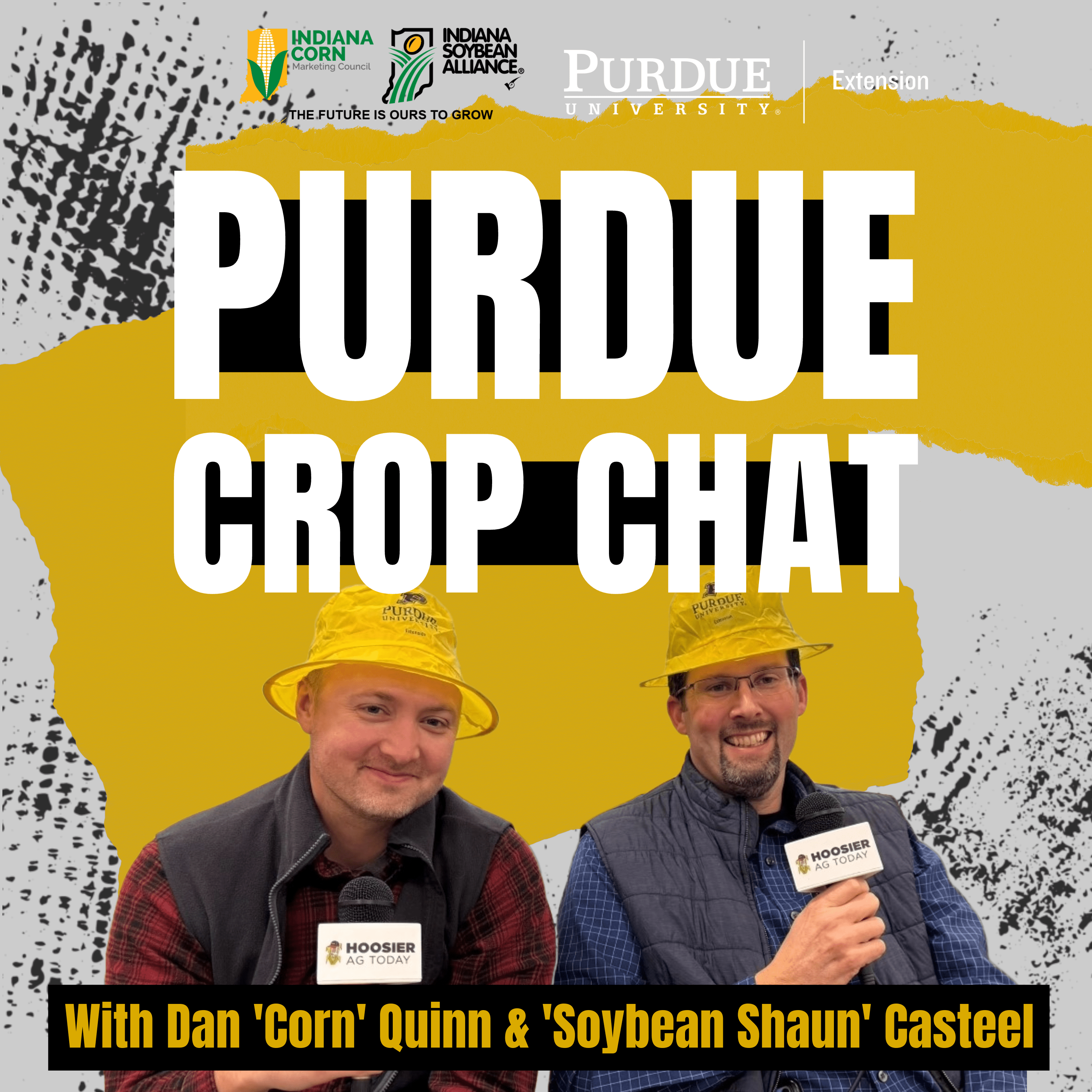
Purdue Crop Chat Episode 72, A Quick & Dry Harvest
50:42Oct 30 -

Purdue Crop Chat Episode 71, Early Harvest Results & The Corn Sweats
50:10Sep 17 -

Purdue Crop Chat Episode 70, Breaking Down the August USDA Reports
56:37Aug 14 -

Purdue Crop Chat Episode 69, Root Lodging and Ponding From Recent Storms
28:26Jul 22 -

Purdue Crop Chat Episode 68, Tissue Sampling, Scouting, & Progress
58:14Jul 02 -

Purdue Crop Chat Episode 67, Tar Spot is Here Earlier Than Ever Before
54:53Jun 20 -

Purdue Crop Chat Episode 66, Weather Frustrating for Some, Great for Others
43:45Jun 04 -

Purdue Crop Chat Episode 65, 'Planting Progress Envy'
39:17May 03 -

Purdue Crop Chat Episode 64, Weed Control Strategies & Technologies
48:33Apr 19 -
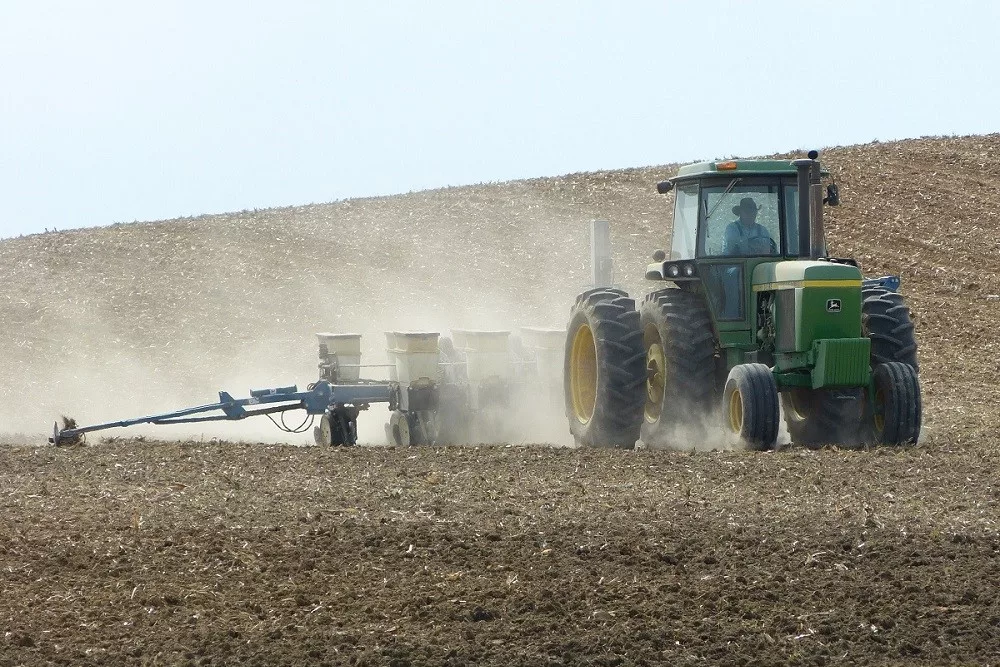
Purdue Crop Chat Episode 63, Dan & Shaun Get Ready for Planting
39:55Mar 29 -
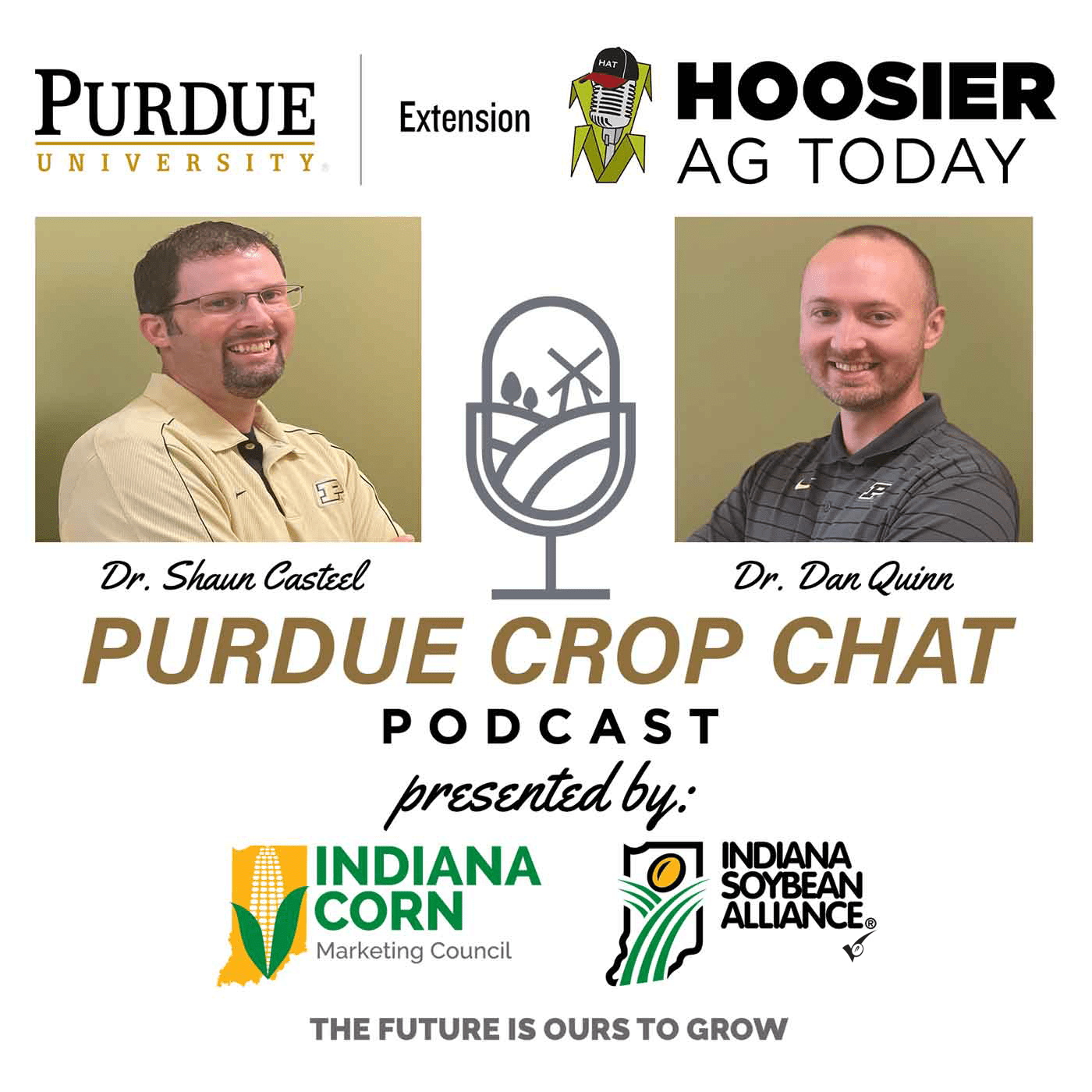
Purdue Crop Chat Episode 62 from Commodity Classic 2024
01:05:42Mar 05 -
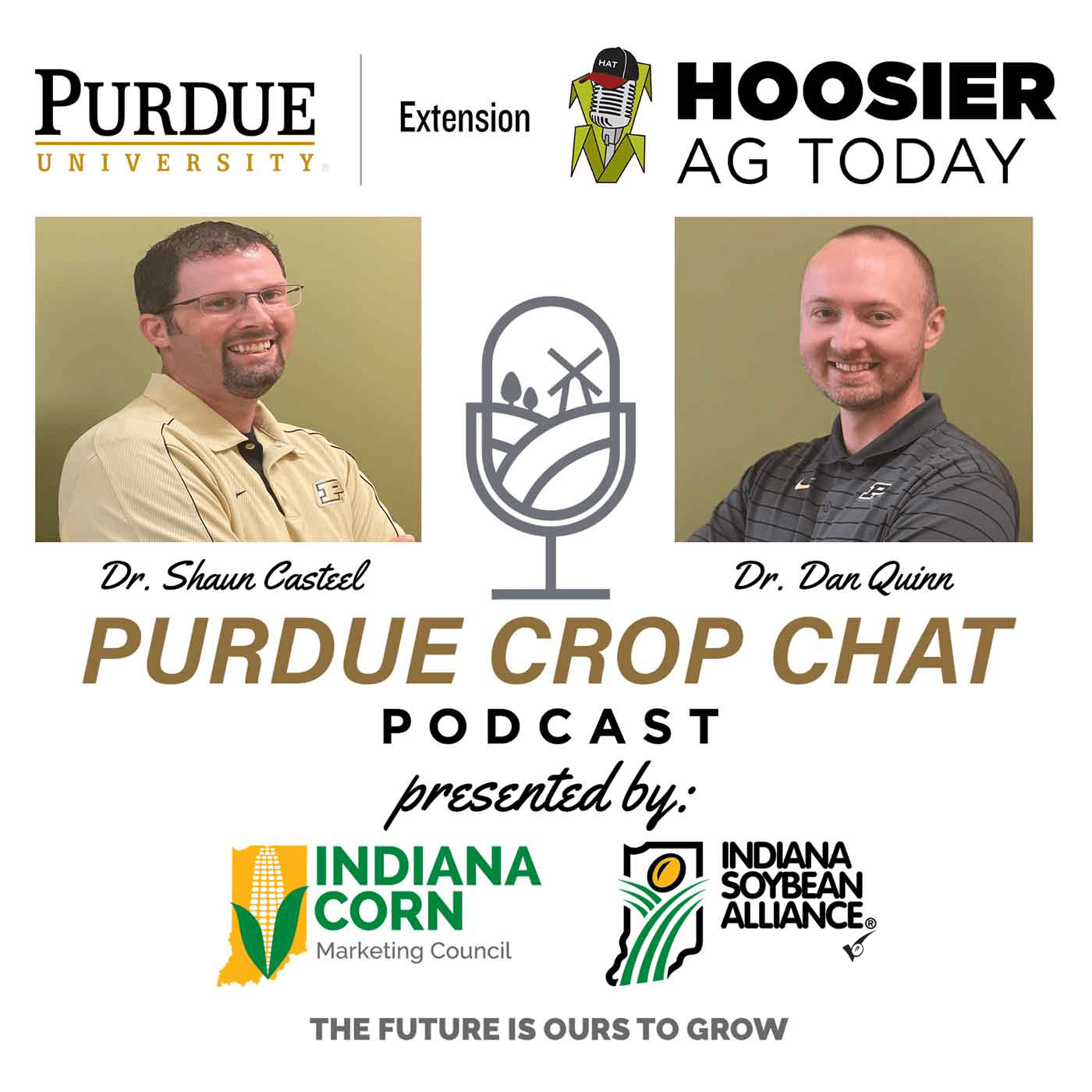
Purdue Crop Chat Episode 61, USDA's Final Indiana Yield Numbers and Farm Fashion
54:01Jan 26 -
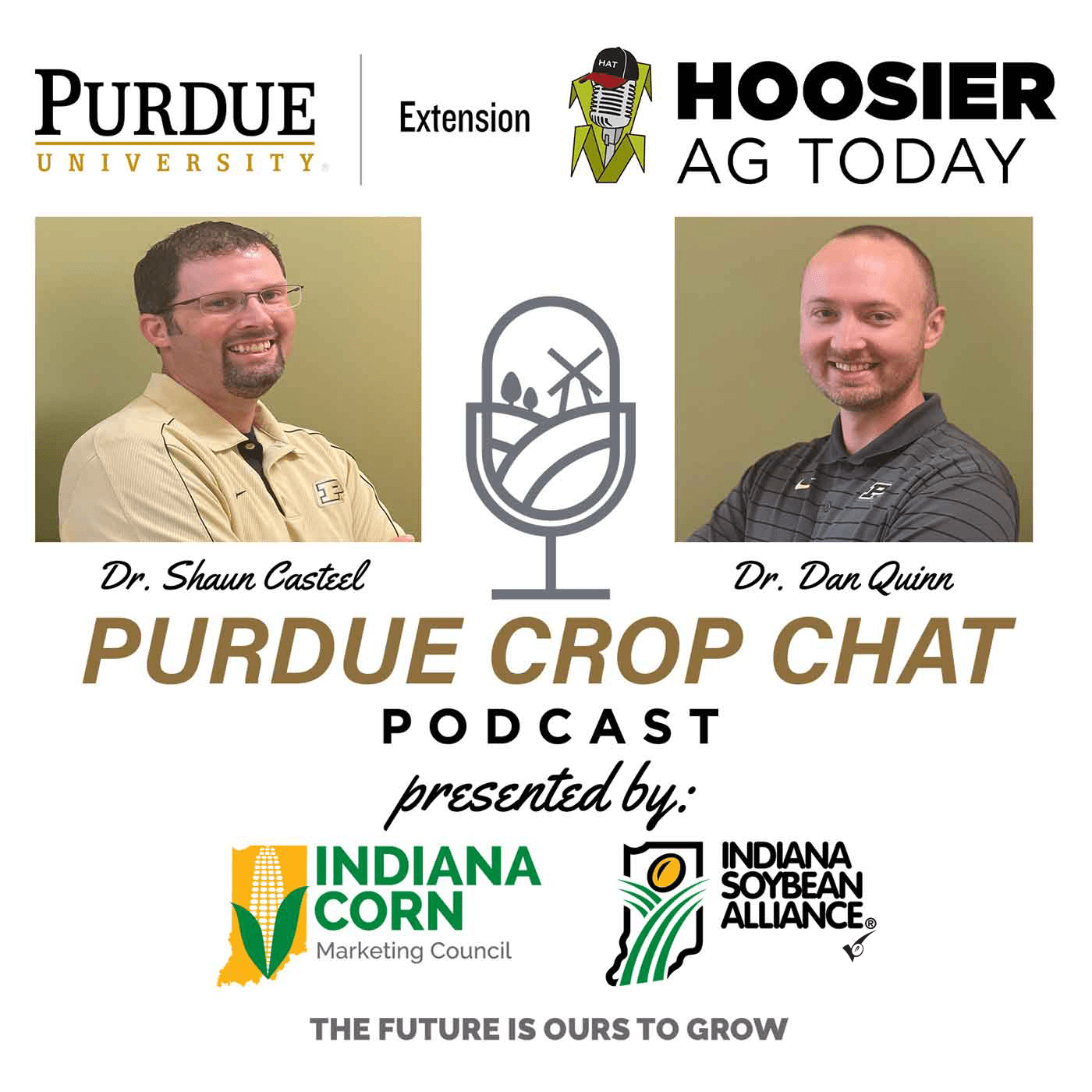
Purdue Crop Chat Episode 60, Do Biologicals Work?
46:32Dec 13 -
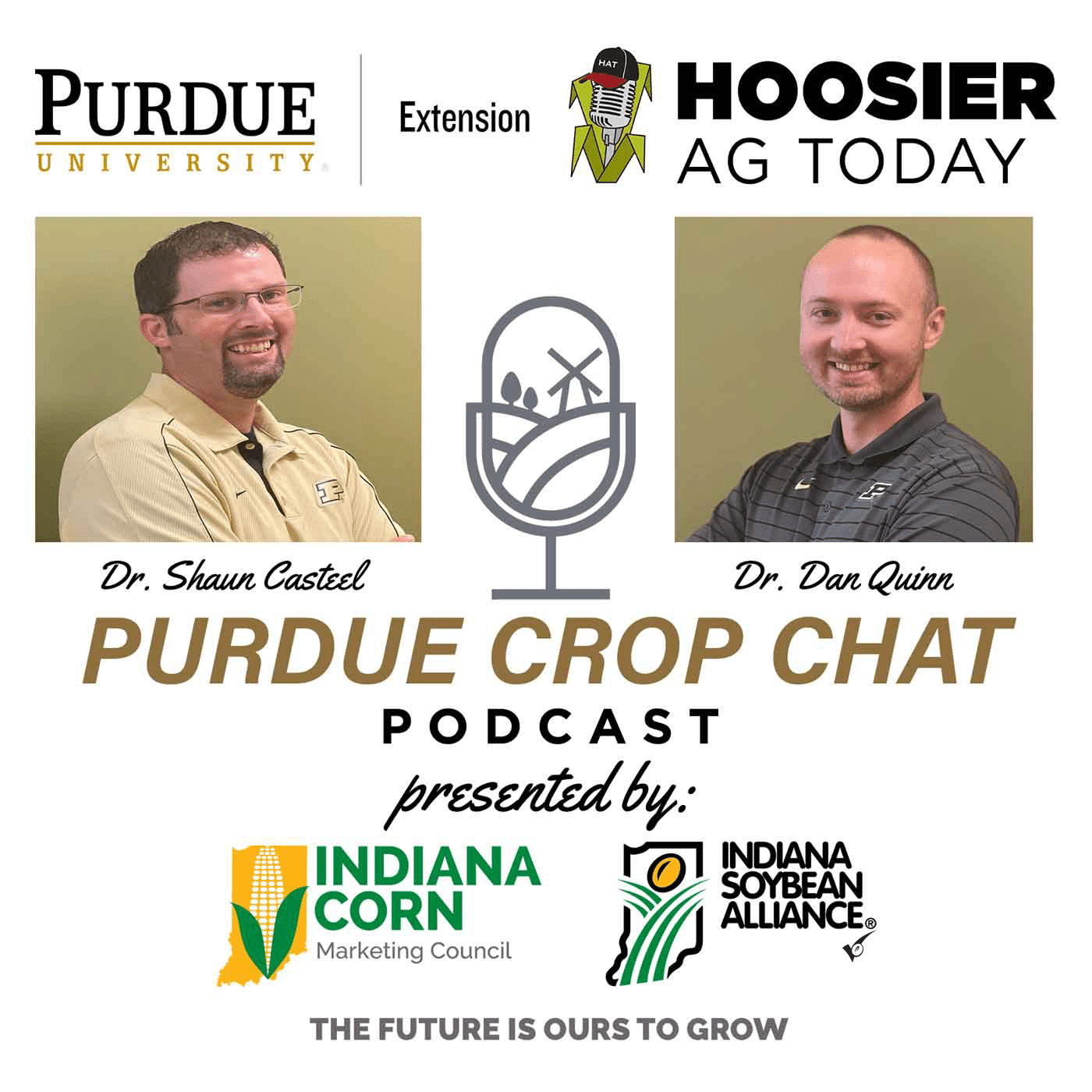
Purdue Crop Chat Episode 59, Record Breaking Yields in Indiana
50:02Nov 13 -
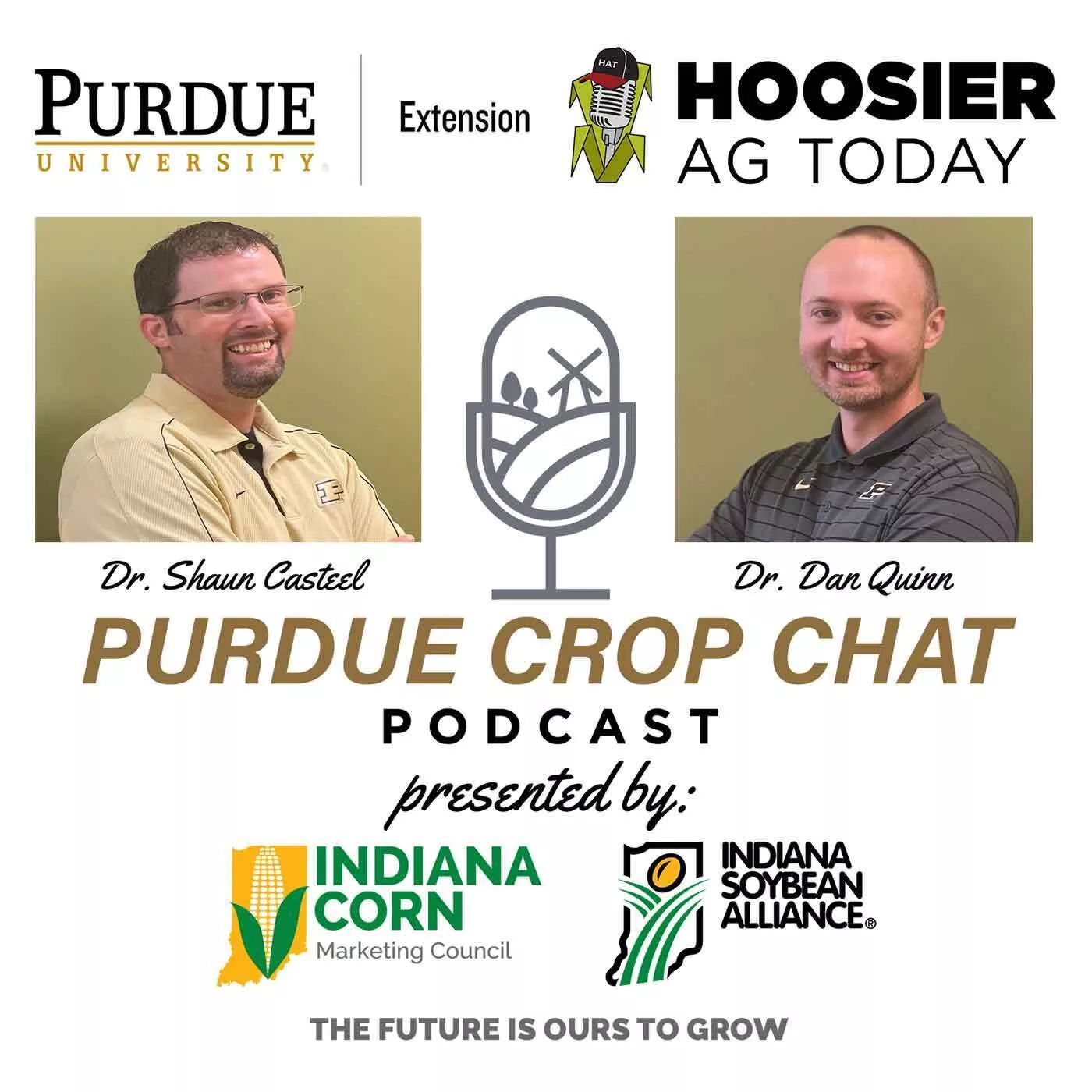
Purdue Crop Chat Episode 58, Surprisingly Strong Early Yield Results
38:39Oct 06 -
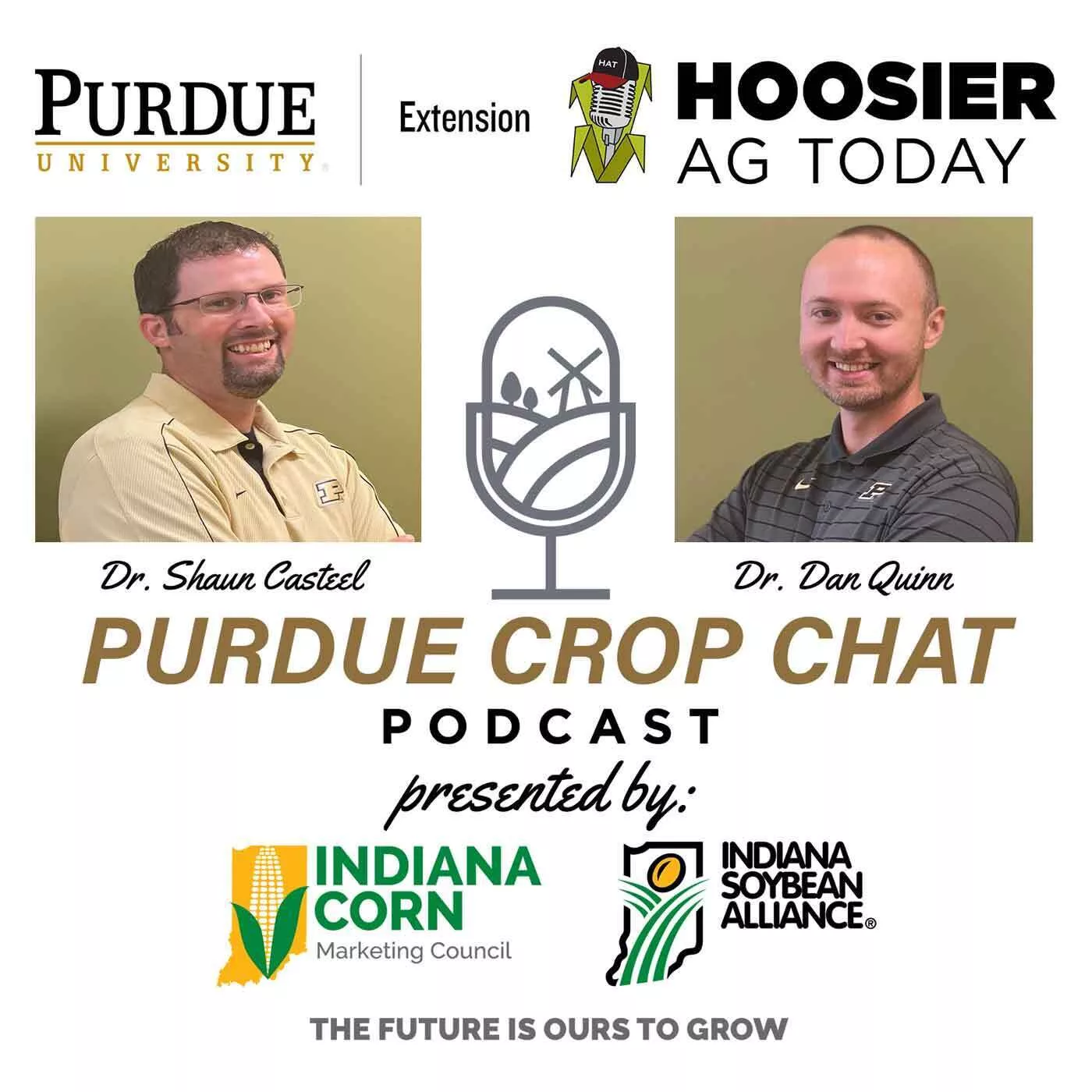
Purdue Crop Chat Episode 56, The Impacts from the Recent Heatwave
35:12Aug 31 -
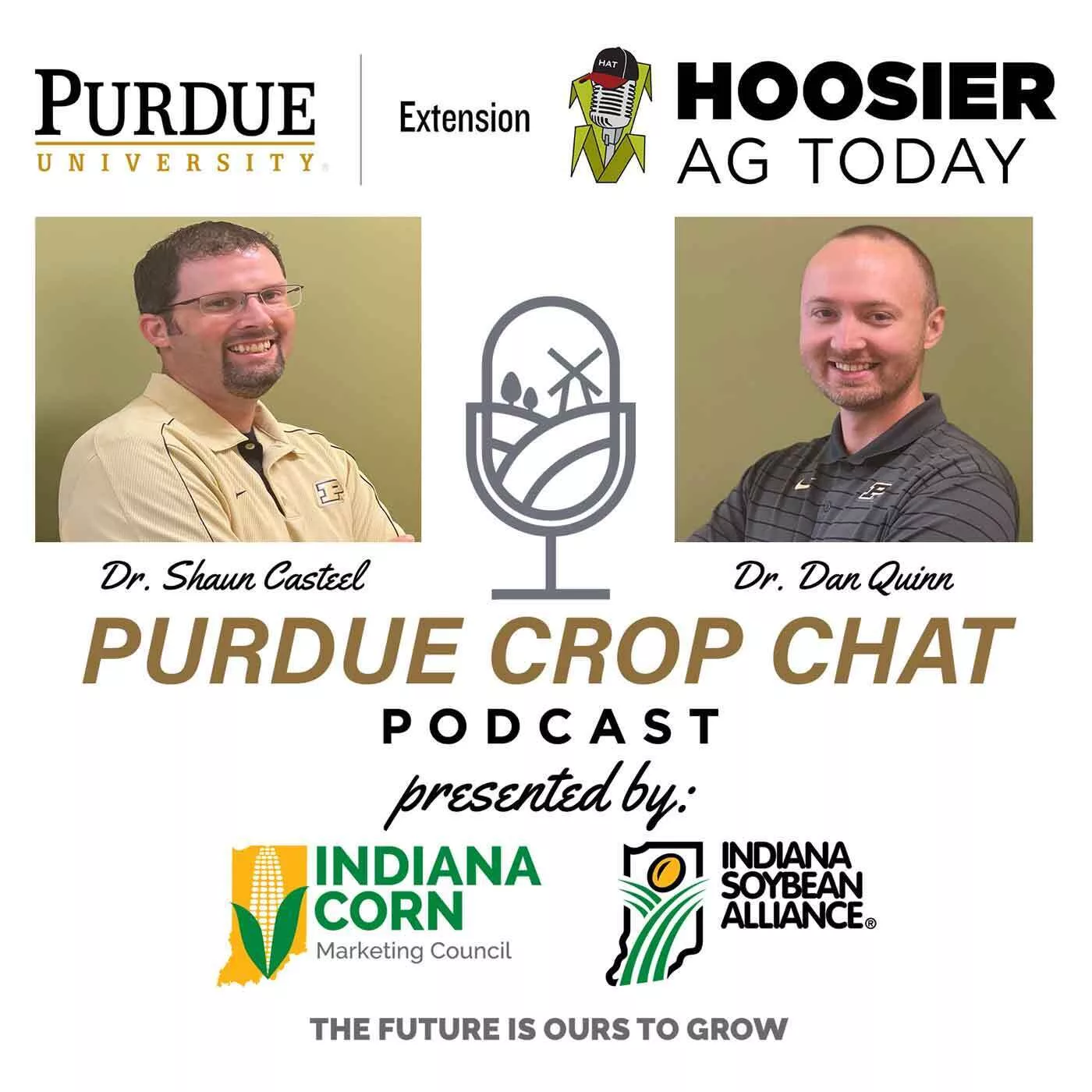
Purdue Crop Chat Episode 55, Breaking Down the August USDA Reports
55:04Aug 14 -
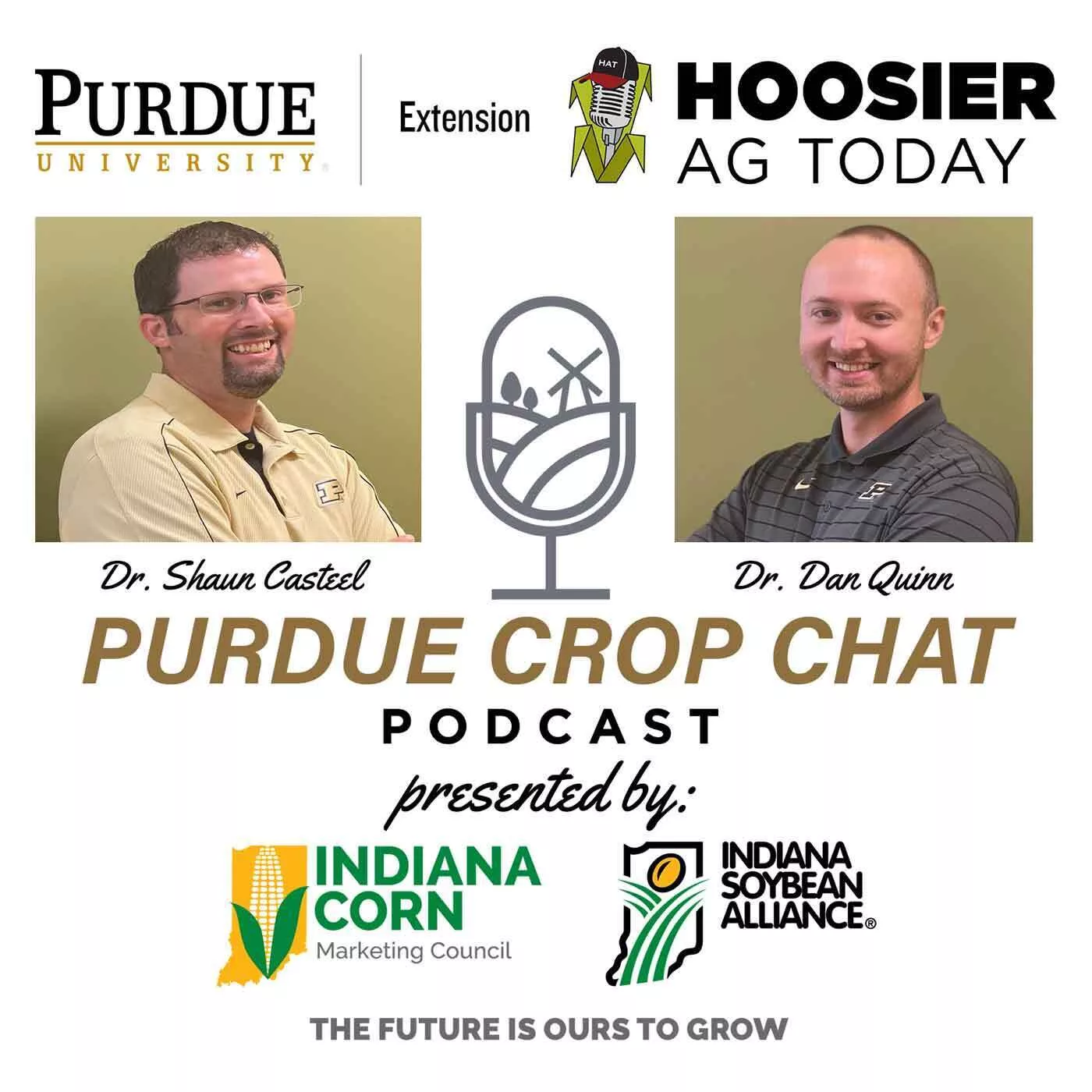
Purdue Crop Chat Episode 54, Tar Spot and Other Corn/Soybean Diseases
50:55Jul 27 -
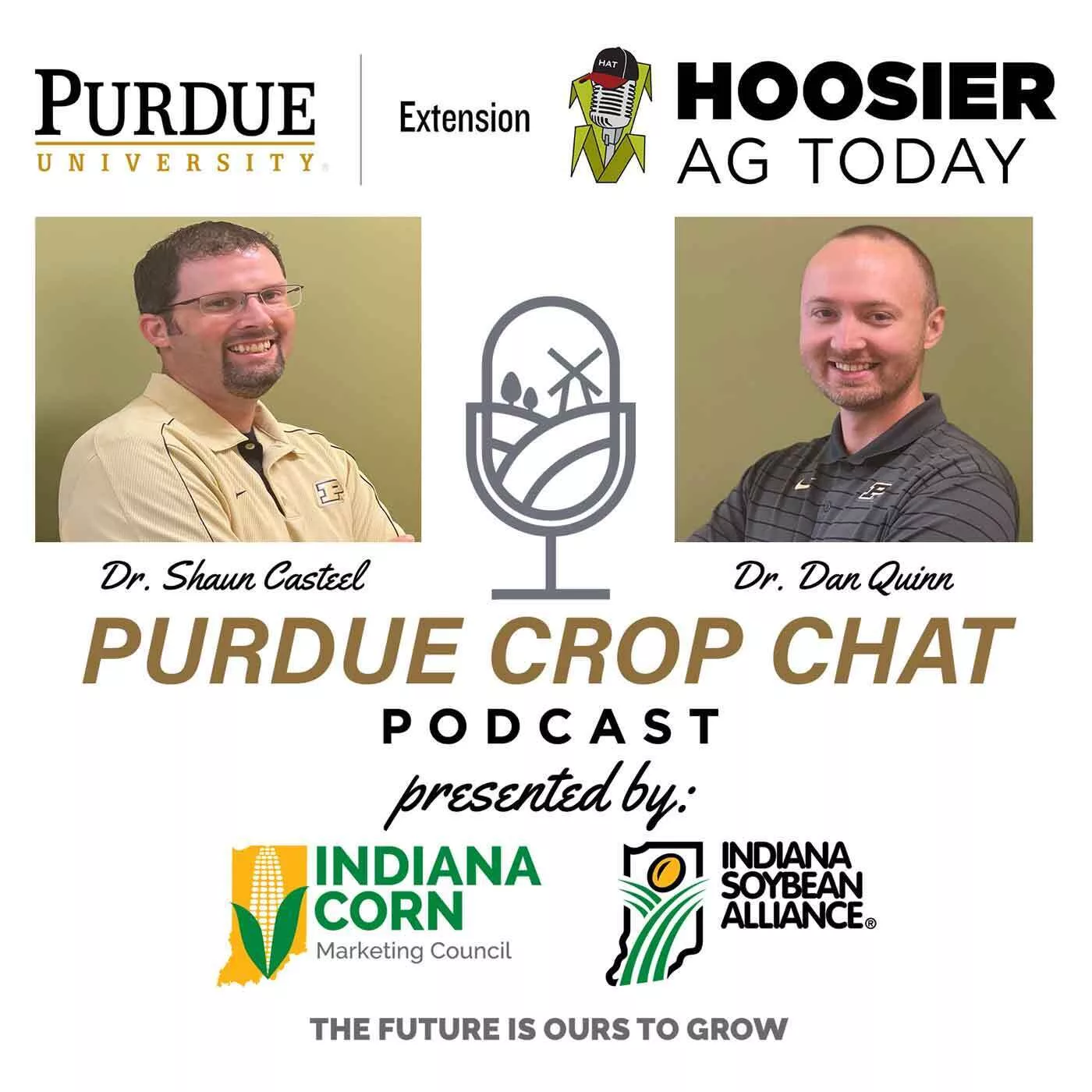
Purdue Crop Chat Episode 53, Is Now the Time for a Fungicide Application?
41:18Jul 17 -
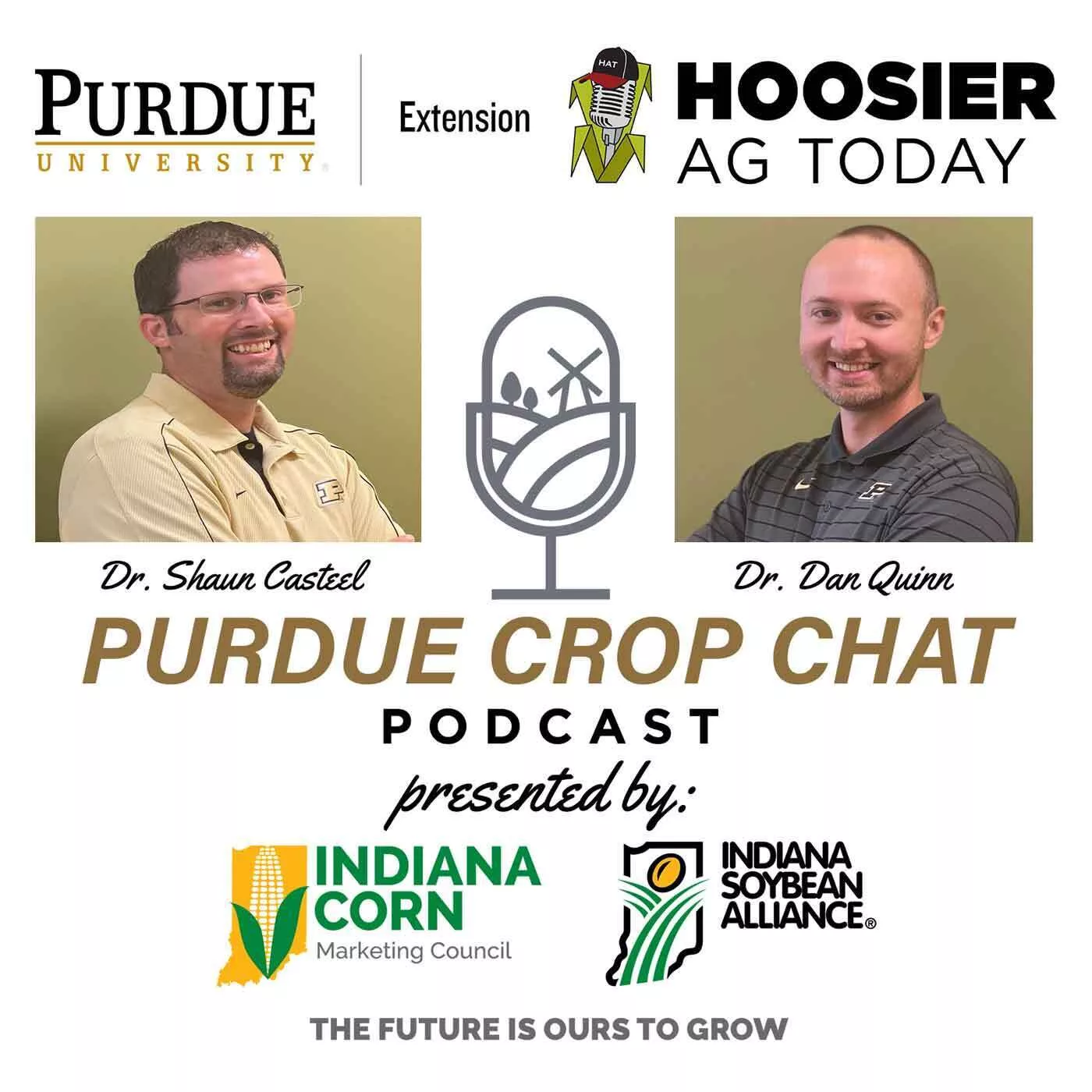
Purdue Crop Chat Episode 52, Northeast Indiana Crop Update & the Smoky Air from Canada
48:31Jun 30
Purdue Crop Chat
Purdue Extension's Dan 'Corn' Quinn & 'Soybean Shaun' Casteel provide timely agronomic info on the Purdue Crop Chat Podcast! Joined by HAT's Eric Pfeiffer, Quinn & Casteel can't help but debate which is better- corn or soybeans? This podcast is presented by the Indiana Corn Marketing Council and Indiana Soybean Alliance.

